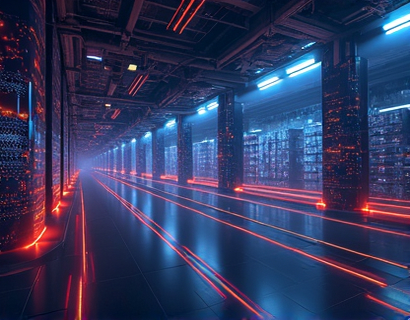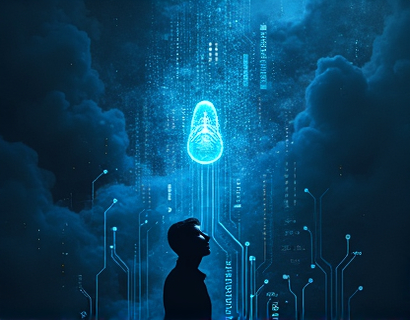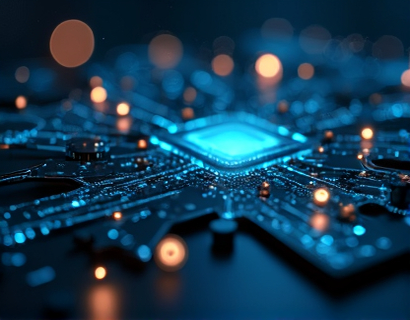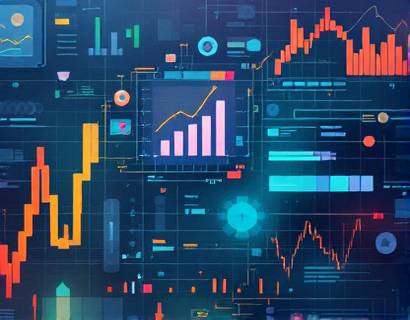AI-Driven Personalized Learning: Revolutionizing Education for All
The educational landscape is undergoing a transformative shift, driven by advancements in artificial intelligence and machine learning. This revolution is particularly evident in the realm of personalized learning, where AI technologies are being harnessed to create tailored educational experiences for students and lifelong learners. The traditional one-size-fits-all approach to education is being replaced by a more dynamic and adaptive model, one that recognizes and caters to the unique needs, abilities, and learning styles of each individual.
Understanding Personalized Learning
Personalized learning is an educational approach that uses data and technology to customize the learning experience for each student. It involves adjusting the pace, content, and teaching methods to meet the specific needs of learners. This approach is grounded in the understanding that no two students learn in exactly the same way. Some may grasp concepts quickly while others may require more time and practice. Personalized learning aims to bridge these gaps by providing a flexible and responsive educational environment.
Role of AI in Personalized Learning
AI plays a pivotal role in making personalized learning a reality. Machine learning algorithms can analyze vast amounts of data to identify patterns and insights that human educators might miss. These insights can inform the creation of personalized learning paths, ensuring that each student receives the most effective and relevant instruction. AI can also provide real-time feedback, adapt to a student's progress, and offer resources that align with their learning style.
Adaptive Learning Systems
One of the key components of AI-driven personalized learning is adaptive learning systems. These systems use algorithms to adjust the difficulty and type of content presented to a student based on their performance and engagement. For example, if a student is struggling with a particular topic, the system can offer additional exercises or explanations tailored to their specific challenges. Conversely, if a student is eExcelling, the system can introduce more advanced material to keep them engaged and challenged.
Personalized Content Delivery
AI can curate and deliver content in a way that resonates with each learner's preferences. Some students may prefer video tutorials, while others might find interactive simulations more effective. AI can analyze a student's interactions and preferences to recommend the most suitable content formats. This not only enhances the learning experience but also increases retention and understanding.
Benefits of AI-Driven Personalized Learning
The benefits of AI-driven personalized learning are numerous and far-reaching. For students, it means a more engaging and effective learning experience. They are more likely to stay motivated and achieve their academic goals when the material is tailored to their needs. For educators, AI provides valuable tools to monitor student progress and identify areas where additional support is needed. This can lead to more targeted and efficient teaching practices.
Enhanced Engagement and Motivation
Personalized learning fosters a deeper connection between students and the material. When learners see that their unique needs and interests are being considered, they are more likely to engage actively with the content. This increased engagement translates into higher motivation and a greater willingness to tackle challenging tasks. Over time, this can lead to improved academic performance and a lifelong love of learning.
Supportive Learning Environment
AI-driven platforms create a supportive learning environment where students feel safe to explore and make mistakes. Immediate feedback and personalized guidance help students build confidence and resilience. This supportive atmosphere is particularly beneficial for students who may struggle in traditional classroom settings, as it provides them with the tools and encouragement they need to succeed.
Challenges and Considerations
While the potential of AI-driven personalized learning is immense, there are several challenges and considerations that must be addressed. One of the primary concerns is data privacy and security. Ensuring that student data is handled responsibly and in compliance with regulations is crucial. Additionally, there is a need for robust infrastructure to support these advanced technologies, which can be a barrier for some educational institutions.
Equity and Accessibility
Equity in education is a significant issue, and AI-driven personalized learning must be designed to bridge rather than widen the gap. Access to technology and high-speed internet is not uniform across all regions and socioeconomic groups. Efforts must be made to ensure that all students, regardless of their background, have access to these innovative learning tools. This includes providing resources and support to underprivileged areas to close the digital divide.
Teacher Role and Professional Development
The role of teachers is evolving in the age of AI-driven personalized learning. Rather than being replaced, teachers are becoming facilitators and guides, working alongside AI tools to provide personalized support. However, this shift requires significant professional development to help educators adapt to new technologies and teaching methods. Continuous training and support are essential to ensure that teachers can effectively integrate AI into their classrooms.
Case Studies and Success Stories
Several educational institutions and platforms have successfully implemented AI-driven personalized learning systems, yielding impressive results. For instance, a large public school district in the United States integrated an AI-powered adaptive learning platform across its middle schools. The results showed a significant improvement in student test scores and a reduction in the achievement gap. Students reported higher levels of engagement and satisfaction with their learning experience.
Another example is a higher education institution that implemented an AI-driven tutoring system for its online courses. The system provided personalized feedback and resources to students, leading to a marked increase in course completion rates and student retention. Faculty reported that the AI tools helped them identify and address student needs more effectively, enhancing the overall quality of instruction.
Future Trends and Innovations
The future of AI-driven personalized learning is exciting and full of potential. As AI technologies continue to advance, we can expect even more sophisticated and intuitive learning experiences. One trend is the integration of natural language processing (NLP) to create more conversational and interactive learning environments. AI chatbots and virtual assistants can provide real-time support and guidance, making learning more accessible and convenient.
Emotional Intelligence and Well-being
Another promising area is the incorporation of emotional intelligence into AI-driven learning systems. By recognizing and responding to a student's emotional state, these systems can provide a more holistic and empathetic learning experience. This can help reduce stress and anxiety, promoting a healthier and more positive approach to education.
Collaborative Learning
AI can also facilitate collaborative learning by connecting students with similar interests and learning goals. Virtual study groups and peer mentoring programs powered by AI can enhance the learning experience by fostering a sense of community and shared purpose. This collaborative approach can lead to deeper understanding and retention of material.
Conclusion
AI-driven personalized learning represents a significant leap forward in education, offering a tailored and adaptive learning experience that can unlock the full potential of students and lifelong learners. By leveraging the power of data and advanced algorithms, these systems can provide the support and resources needed to succeed in an increasingly complex world. As the technology continues to evolve, it is essential to address the challenges and ensure that the benefits of personalized learning are accessible to all. The future of education is bright, and AI is at the forefront of this transformative journey.










































